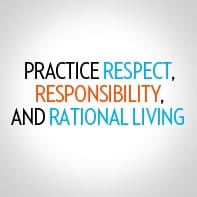
Looking to succeed?
Most of us are, but what happens when the desire to succeed undermines our ability to perform?
Performance situations where we feel the pressure to excel can have a serious impact on how well we accomplish our goals. What’s more, it can leave one questioning their expectations, abilities and methods, as one reader writes, “My situation has left me confused about the best way to do well. I’m not even sure if I’m holding myself to too high or too low a standard anymore”.
Whether we are giving a stage performance, completing an important task at work, interviewing for a new position or preparing for a final exam, most of us respond to intense situations, where we feel judged, with a wave of adrenaline and a mild state of anxiety.
For many of us this simply activates and motivates behaviors directed towards completing the task at hand. We prepare, problem solve and follow through. The adrenaline drives our attention and concentration so we stay focused on what is the most vital: getting the job. Thus, we relieve the anxiety by accomplishing the difficult goal and reward ourselves with the sense of accomplishment, accompanied perhaps with a pat on back and a sigh of relief.
However, on the other hand, for others the anxiety reaction is much stronger. The elicited response is to become self-consumed, rather than task focused. The anxiety seems to derailed our problem solving and task oriented behaviors. Not only do we become self-critical, we spend too much time analyzing the overall situation trying determine if its “fair or not”. This not only diminishes our chances of being successful, but also causes more anxiety. On top of this, it negatively affects our self-esteem, leads us to draw erroneous negative conclusions from flawed evaluations and contributes to an overall defensive tone. In sum, it makes it harder to adapt to the situation.
What to do:
Lets start with the good news: This is a learned response to your anxiety. So like many other anxiety reactions overtime, with proper and consistent training it can be unlearned and new habits can be formed.
• Start by practicing and developing techniques to reduce with your anxiety. Practice your breathing and incorporate its use into difficult situations. The calmer your body, the more in control of your thoughts you will be. Practice, practice & practice! This way your skills will be up to speed when a tough situations occurs. (see my post on breathing for more info)
• Inoculate yourself. Learn to accept your anxiety and not fear it. Remember that anxiety is a normal response. Focus on how the anxiety feels physically in alternative situations so you get used to the sensations and therefore, can better control your reactions. Just because you have an itch, doesn’t mean you always have to scratch it.
• Worst Case Scenario-Ask yourself what you are so worried about? Answer this question! Very anxious people usually generate a ton of questions in their head without providing any answers. This maintains the arousal and does nothing to resolve the situation.
Ground yourself by answering your own questions. Write out “What the Worst Case Scenario” would actually be. Don’t skimp on the process (write it out).
Define all the steps that would have to occur, in sequential order to get you to the place of failure that you fear. Assign each step a probability score based on the chance of it happening. Multiply those probabilities to determine the overall probability of your worse nightmare occurring. Sit with this realization. Odds are it’s lower than what you might have originally imagined, so let the reality seep in.
• Problem Solve- Just because your head is drawn towards self-evaluation does not mean you have to indulge those thoughts and behaviors. If you are having a hard time staying focused, work with a partner or take frequent short breaks.
• Create Smaller Goals- Devise an action plan that includes focusing on short manageable behavioral goals rather than the whole project. For example, if you are working on reading a report for work, commit to reading a page in between each break rather than focusing on an entire section. This will at least give you the opportunity to be productive while waiting for your flow to develop or return.
• Use benchmarks to monitor and maintain your pace- For example, if you are giving a speech create mental and behavioral benchmarks in your presentation by breaking your slides into sections and including behavioral markers (such as photo slides). Remember to pause a moment and take 2 -3 deep breaths when you reach the marker. Smile at your success before moving out to the next benchmark :-).
• Avoid emotional or abusive language- Words like “disaster”,“stupid”, “idiot”, “horrible” and “complete failure” don’t help they only hinder. Use objective language or rather scores to rate your performance or anxiety level. Reducing it to a number will help you contain the spread of the problem, but it will also help you to become more objective and less emotionally responsive.
• Boost your self esteem by teaching someone else. Build your confidence up by doing something that is challenging but you know you do well. Consider teaching someone less experienced the skill. Allow yourself to feel a strong sense of pride. Take a moment to reflect on how you view others around you who are less skilled. Are you judging them as harshly as you would imagine they would judge you if the situation where reverse? Probably not.
Remember this: successful people are not successful because they are always naturally gifted or the best. They are successful because failure and mediocrity does not seem to derail their efforts; they are successful because they always come back for more.
Dr. Jayme

















Maria Rosa Sposato and Natanael Matos like this.
Lorie Paul
Lorie Paul at 9:34pm April 22
Great article Jayme, thanks for sharing!
Maria Rosa Sposato and Natanael Matos like this.
Lorie Paul
Lorie Paul at 9:34pm April 22
Great article Jayme, thanks for sharing!
Thank Dr. Jayme Albin
Hey. So, I’ve been trying to wrap my head aonurd our conversation and now I have a bit of a headache. At times it seems like we may be talking about the same thing just using different metaphors while other times, you seem to be talking about a therapeutic approach much deeper. I’m curious about the types of therapy you’ve been through? Maybe this would help me understand better?I keep going back to this quote- So, if a job requires that you be able to work independently, and you get one of those flashbacks of a time in your life when you “failed” at doing that, look at how you represent that to yourself. Is it funny or is it devastating to recall the event? What are the colours, sounds, feelings involved? I’m doing CBT by myself, but I’m also in talk-therapy, and those questions you posit, sound like they came from my therapist. Whenever we go back to look at trauma, he always asks me about the sounds and visuals and how I felt. I never understood why. I mean, on a rational level I do. But everything happens so much deeper than that. Anyway, I’m going to stop rambling. I hope all is well for you.
Thank Dr. Jayme Albin
Hey. So, I’ve been trying to wrap my head aonurd our conversation and now I have a bit of a headache. At times it seems like we may be talking about the same thing just using different metaphors while other times, you seem to be talking about a therapeutic approach much deeper. I’m curious about the types of therapy you’ve been through? Maybe this would help me understand better?I keep going back to this quote- So, if a job requires that you be able to work independently, and you get one of those flashbacks of a time in your life when you “failed” at doing that, look at how you represent that to yourself. Is it funny or is it devastating to recall the event? What are the colours, sounds, feelings involved? I’m doing CBT by myself, but I’m also in talk-therapy, and those questions you posit, sound like they came from my therapist. Whenever we go back to look at trauma, he always asks me about the sounds and visuals and how I felt. I never understood why. I mean, on a rational level I do. But everything happens so much deeper than that. Anyway, I’m going to stop rambling. I hope all is well for you.
I am a graduate student and this is exactly the advice and knowledge I need to make my grad school experience positive ; not to mention, I’ll be required to meet stressful deadlines after graduate school !
Thank you !
I am a graduate student and this is exactly the advice and knowledge I need to make my grad school experience positive ; not to mention, I’ll be required to meet stressful deadlines after graduate school !
Thank you !
more comments http://www.linkedin.com/newsArticle?viewDiscussion=&articleID=33249986&gid=831767
more comments http://www.linkedin.com/newsArticle?viewDiscussion=&articleID=33249986&gid=831767